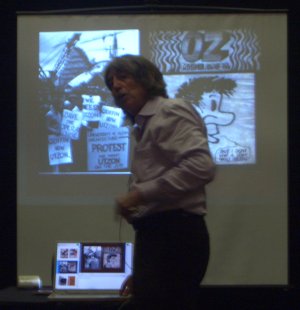Worried about the new Rudd government’s election pledge to ensure all libraries have mandatory internet filtering? Me too.
Let’s hope Kev’s too busy trying to negotiate bringing our combat troops out of Iraq to notice legislation that has been passed in the US House of Representatives. It is not yet L-A-W as it still needs to be passed by the Senate and then the President. It would affect libraries that provide wi-fi for the public.

Loli, loli, lolicon! Uploaded o Flickr on November 10, 2007 by adrimaster
According to House vote on illegal images sweeps in Wi-Fi, Web sites,
This is what the SAFE Act requires: Anyone providing an “electronic communication service” or “remote computing service” to the public who learns about the transmission or storage of information about certain illegal activities or an illegal image must (a) register their name, mailing address, phone number, and fax number with the National Center for Missing and Exploited Children’s “CyberTipline” and (b) “make a report” to the CyberTipline that (c) must include any information about the person or Internet address behind the suspect activity and (d) the illegal images themselves. (By the way, “electronic communications service” and “remote computing service” providers already have some reporting requirements under existing law too.)
The definition of which images qualify as illegal is expansive. It includes obvious child pornography, meaning photographs and videos of children being molested. But it also includes photographs of fully clothed minors in overly “lascivious” poses, and certain obscene visual depictions including a “drawing, cartoon, sculpture, or painting.” (Yes, that covers the subset of anime called hentai).


